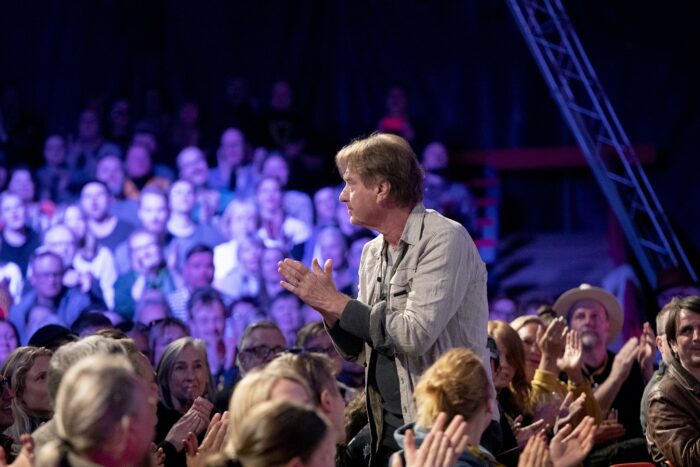At the last Morning Discussion of this year’s Midnight Sun Film Festival, we heard director Mika Kaurismäki who is among the most productive directors in Finland and one of the founders of the Midnight Sun Film Festival. The discussion conveyed a profound love for both cinema as an artform and the festival.
Kaurismäki’s interest in cinema started already in high school where he belonged to a film club and shot home movies. Kaurismäki says that shooting home movies was a film school in itself: “Only when I was shooting, I realised that okay somebody is behind the camera and thinking about how to make the film.” Kaurismäki’s love for road movies come from his own travels. Already at 10 he had visited every country in Europe.
For a long time, Kaurismäki dreamt of becoming an architect and he studied architecture for a year before his film studies in Munich. However, his interest in people’s handiwork is still visible in his films. “Film making and architecture or building houses are similar processes – you start with an empty idea that someone is thinking and planning by themselves. Then you start building it together and you need a lot of money and people”, Kaurismäki says.
The director says that at film school in Munich he learned the most from his fellow students and by watching hundreds of films from the vast archive. He was most impressed by the French New Wave, Italian directors, and Japanese films, most of all Akira Kurosawa and Kenji Mizoguchi. He also says that German film and Werner Herzog made a great impression on him.
Kaurismäki’s own directing career started with the short film The Liar (1981), which was also his diploma work when he graduated from the film school in Munich. The script was written by his little brother Aki Kaurismäki who also acted in it. The Liar got a warm welcome: it won the Risto Jarva award at the Tampere Film Festival and got an overwhelmingly positive review in the biggest Finnish newspaper Helsingin Sanomat.
Kaurismäki’s passionate but also relaxed and humoristic attitude to filmmaking is apparent in the stories he tells about his films. Rosso (1985) was shot on leftover film from other productions found in the fridges of Villealfa, Jörn Donner Productions and Filminor. Cha Cha Cha screened at this year’s Midnight Sun Film Festival was made in order to get actor Matti Pellonpää’s teeth fixed: in one scene his character has a dentist’s appointment.
The idea to start the Midnight Sun Film Festival arose from a need for a festival with a more relaxed and communal atmosphere compared to the rather formal festivals in Berlin and Cannes. “Filmmakers want to be in contact with the audience, too. Normal contact and not just interviews and marketing stuff”, Kaurismäki explains. He tells he once met Francis Ford Coppola in Sodankylä while queuing at a sausage stand.
Kaurismäki is an incomparably productive film maker, and he has a deep knowledge of film history. He says that unlike some directors he does not want to make similar films time after time humorously referring to his brother’s work. To a deserted island he would take Kenji Mizoguchi’s film Ugetsu (Ugetsu monogatari, 1953).
